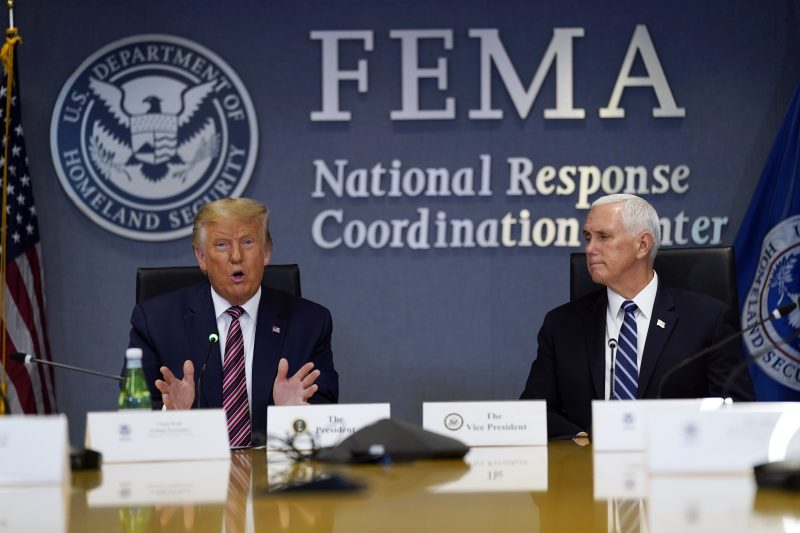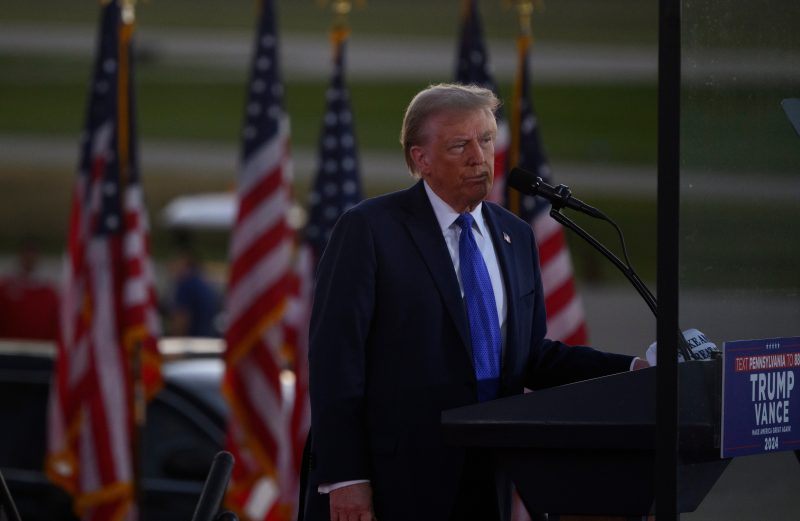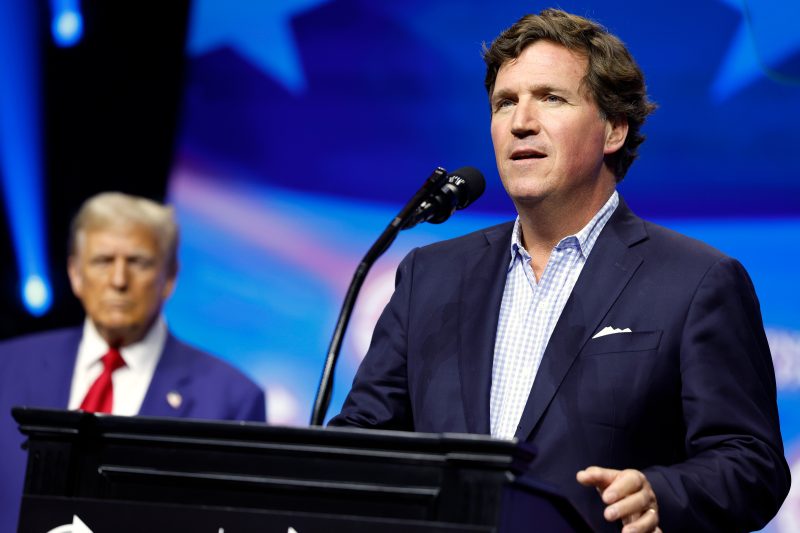How reported threats in N.C. trace to Trump-fueled misinformation

For weeks, misinformation about the Federal Emergency Management Agency and the Hurricane Helene response has spread far and wide on social media platforms — with more than a helpful nudge from Donald Trump, Elon Musk and the relaxed moderation policies of Musk’s platform, X.
The real consequences of that have begun to show.
The Washington Post reported late Sunday that federal emergency responders were ordered evacuated from Rutherford County, N.C., on Saturday due to a reported threat from militia. An official with the U.S. Forest Service said the National Guard “had come across x2 trucks of armed militia saying there were out hunting FEMA.”
Earlier in the day, a resident threatened FEMA personnel in a trailer in the same county, according to two volunteers with Cajun Navy, a relief organization. Former Forest Service official Riva Duncan also said people had been harassing federal employees who were delivering aid to the area, saying they didn’t want the help.
Ashe County, N.C., Sheriff Phil Howell cited “threats” made against FEMA employees in nearby counties — though not in his, he said — and said the officials had “paused their process as they are assessing the threats.”
Separately, Rep. Chuck Edwards (R-N.C.) told MSNBC on Sunday that “we had two counties [where] folks reported different militia groups attacking and threatening FEMA.”
The origin of the threats and how serious they have been isn’t yet known. The North Carolina National Guard has reportedly said it has no actual reports of encountering militia, though authorities in the state arrested an individual Saturday and charged him in connection with alleged threats made against FEMA.
But it’s clear that the situation has led to heightened tensions, and that has now delayed recovery efforts. And it’s easy to connect that to the volatile environment that social media misinformation has created in the areas most affected by Helene in western North Carolina. Both Musk and Trump have contributed to that.
It’s now the second time in a month that a Trump-fueled conspiracy theory has preceded apparent threats made in the relevant area — with the last one being Trump’s false claims about Haitian migrants stealing and eating pets in Springfield, Ohio. Each time, local Republican officials have sought to combat the conspiracy theories and warned of the harm they could do.
Both instances reinforce the potential danger of Trump’s conspiratorial bent and willingness to deploy such misinformation and political tactics even in tense and tragic situations. Trump unleashed a torrent of similar misinformation early in the coronavirus pandemic and after the 2020 election as he sought to overturn the results — the latter of which culminated in the Jan. 6 insurrection.
Most prominent among the Helene conspiracy theories has been that FEMA has blocked materials and seized property from affected areas. Rutherford County is a focal point of such theories, with users falsely claiming that the government aimed to seize lithium deposits in Chimney Rock in Rutherford County.
Edwards last week cited that false claim at the very top of a news release seeking to debunk various conspiracy theories related to the hurricane. North Carolina state Sen. Kevin Corbin (R) also prominently cited the theory while seeking to combat misinformation.
The government in neighboring Buncombe County reported last week that it was inundated with calls about FEMA purportedly rejecting donations and seizing property.
As far back as last week — before the most recent events — a nonprofit group warned of potential militia activity related to such claims. The Institute for Strategic Dialogue connected the conspiracy theories to “calls to send militias to face down FEMA for the perceived denial of aid, or to shoot and/or harm FEMA officials and the agency’s emergency responders.”
To be clear, it’s not just social media users promoting this underlying theory. It has also been Trump, Musk and prominent MAGA influencers.
They haven’t specifically cited the claims about lithium deposits, but they have promoted the idea that the government is blocking and seizing things. Musk on Oct. 4 passed along a claim from a SpaceX employee who claimed that FEMA was “actively blocking shipments and seizing goods and services locally and locking them away to state they are their own.” Trump then reposted Musk’s X post on his Truth Social platform. Trump has also claimed without evidence that the hurricane response is deliberately withholding aid from Republican-leaning areas.
Just received this note from a SpaceX engineer helping on the ground in North Carolina. @FEMA is not merely failing to adequately help people in trouble, but is actively blocking citizens who try to help!
“Hey Elon, update here on site of Asheville, NC. We have powered up two…
— Elon Musk (@elonmusk) October 4, 2024
Those are among a battery of false claims Trump has made about the hurricane response, in a transparent effort to politically harm the Democrats atop the federal and state governments — including his 2024 election opponent, Vice President Kamala Harris.
Shortly after the hurricane hit, Trump claimed Georgia Gov. Brian Kemp (R) hadn’t been able to reach President Joe Biden, even though Kemp had already said he’d spoken to Biden. Trump has also falsely claimed FEMA funding was diverted to helping migrants.
It’s difficult to attach what we know of the apparent threats in North Carolina directly to Trump or even Musk, vs. others promoting such claims. The claim about seized materials has not been Trump’s most prominent conspiracy theory, even as he has clearly trafficked in it and made other false claims about FEMA.
We also don’t know much about the threats or how serious they might have been. After dozens of bomb threats in Springfield last month, Ohio Gov. Mike DeWine (R) said many of them had originated overseas — the implication being that foreign actors were seizing on the situation to stoke unrest, rather than that Trump’s claims spurred actual Americans to make such threats.
But regardless of the origin of the threats, it’s clear the underlying conspiracy theories are creating real problems on the ground and unnecessary confusion and fear in North Carolina. And as with the Jan. 6 insurrection, while Trump’s direct culpability might be an open question, it’s incontrovertible that he has made a tense situation worse with his misinformation.
He has seeded unwarranted distrust of FEMA with a series of false claims. And North Carolina is the latest to deal with the consequences.




